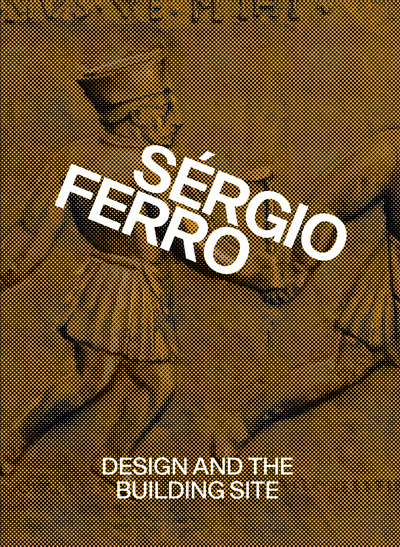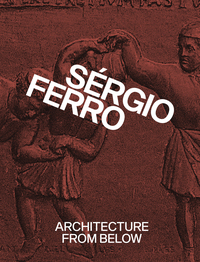Nous utilisons des cookies pour améliorer votre expérience. Pour nous conformer à la nouvelle directive sur la vie privée, nous devons demander votre consentement à l’utilisation de ces cookies. En savoir plus.
DESIGN AND THE BUILDING SITE AND COMPLEMENTARY ESSAYS
EAN : 9781915743497
Édition papier
EAN : 9781915743497
Paru le : 31 déc. 2099
35,00 €
33,18 €
Bientôt disponible
Pour connaître votre prix et commander, identifiez-vous
A paraître 31 déc. 2099
Notre engagement qualité
-
 Livraison gratuite
Livraison gratuite
en France sans minimum
de commande -
 Manquants maintenus
Manquants maintenus
en commande
automatiquement -
 Un interlocuteur
Un interlocuteur
unique pour toutes
vos commandes -
 Toutes les licences
Toutes les licences
numériques du marché
au tarif éditeur -
 Assistance téléphonique
Assistance téléphonique
personalisée sur le
numérique -
 Service client
Service client
Du Lundi au vendredi
de 9h à 18h
- EAN13 : 9781915743497
- Date Parution : 31 déc. 2099
- Disponibilite : Pas encore paru
- Barème de remise : NS
- Nombre de pages : 280
- Format : 0.00 x 16.50 x 22.50 cm
- Poids : 0gr
- Résumé : Dating from the early 1970s, ‘Design and the Building Site’ is Sérgio Ferro’s most influential theoretical work. Written just after Ferro had arrived in France after fleeing the military dictatorship that took power in Brazil in 1964 and arrested him in 1970 for his involvement in active resistance, the essay reflects much of what he had left behind: encounters with Brasilia’s harsh construction sites; experiences with the collective Arquitetura Nova; work on the editorial committee of the journal Teoria e Prática; and the year Ferro spent in prison, befriending construction workers and reading Freud. The text constitutes a critique of architectural production under capitalism, surveying the political economy of architectural production and its influence on the contemporary practice of architecture. Half a century after its first publication, and in the face of capitalism’s greatest crisis, it has never offered such a pressingly relevant call for action. This edition contextualises and expands on Ferro’s essay with earlier and later texts, clarifying both the contextual and theoretical elements at play in its argument. A preface written by Ferro especially for this first English-language edition recounts his journey from Brasilia’s building sites to the experiments of Arquitetura Nova, as well as a topic he has rarely touched on before: postmodernism. ‘Production of Houses in Brazil’, from 1969, analyses the Brazilian dwellings from popular self-builds to the luxury and mass markets, offering both a historical report and a blueprint for deciphering the social relations of architectural production in other contexts. Finally, ‘Against the Grain’, a recent and previously unpublished essay, interprets architectural modernism as a Hegelian ‘determinate negation’ of nineteenth-century eclecticism. Together, these texts constitute a deeper exploration of the theory introduced in Architecture from Below: An Anthology, and offer a broad range of challenging and vital ideas to builders, thinkers, and architects today.



